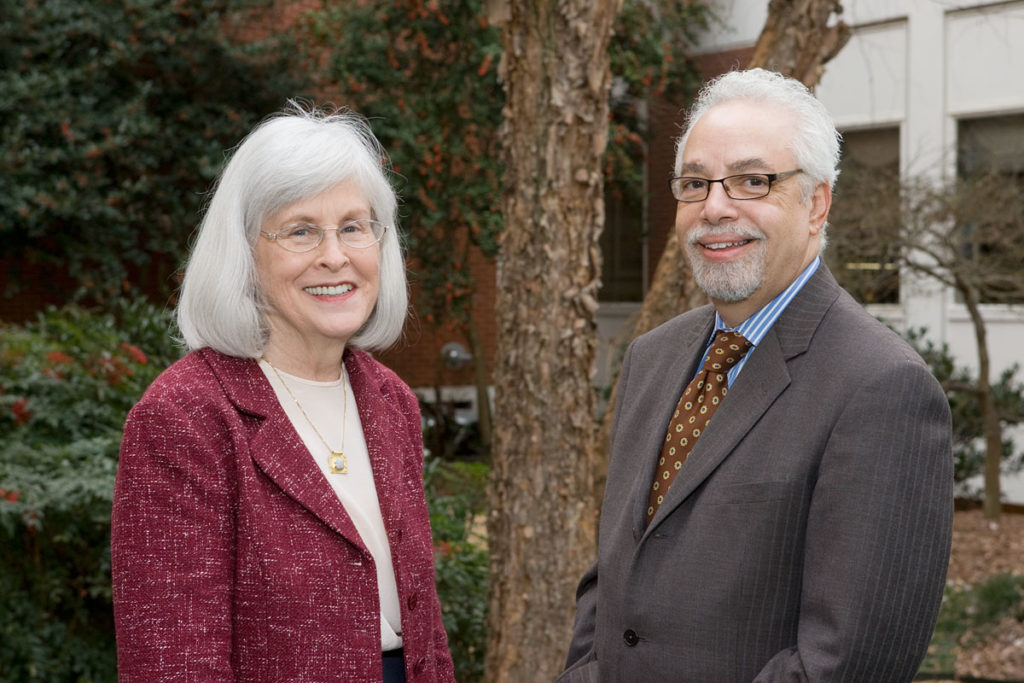The Office of Institutional Diversity is launching a new Diverse Faculty Mentoring Program, which aims to help new and recently hired faculty members adjust to UGA and the surrounding community.
“We’re very concerned about diverse faculty recruitment and retention, and we know that retention has a lot to do with whether someone feels that UGA is open and inclusive,” said Cheryl Dozier, associate provost of the Office of Institutional Diversity.
The program aims to connect seasoned UGA faculty and researchers with junior-level faculty. Those who have been at the institution three years or less can join to be matched with a mentor. While the program is open to everyone, minority faculty members are especially encouraged to be a part.
“We were only going to open it to first-year faculty, but I was talking to a colleague of mine who has been here a couple years and she said, ‘It sounds like I need that. Why can’t you open to more than just first years?’ ” Dozier said. “So we’re opening participation up to people who have been here for up to three years.”
Faculty from underrepresented groups often face a different sort of adjustment, both on campus and within the community, from finding the right hair salon or ethnic eatery to locating an appropriate worship service, Dozier said.
“Mentoring already happens on an informal level, so what we’re doing is making it more formal,” she said. “Because when it happens informally, some people get left out.”
The program was created with the guidance of co-facilitators Louis Castenell, a professor of education, and Sharon Nickols, Janette M. Barber Distinguished Professor of Housing and Consumer Economics.
Both Nickols and Castenell are former deans at UGA, which means they understand the value and challenges of retaining a diverse faculty.
“This is really about the university’s mission to become a leading research university with an international focus,” Castenell said. “Minority faculty are still a scarce resource in higher education and there is a strong market for talented minority faculty throughout the country, so every major research university has a program to recruit and retain them.”
A diverse faculty also is essential to a quality education, he added.
The program brings together faculty from different programs, colleges and units in the university. In fact, newer faculty will not be paired with senior members from the same discipline.
“Even the most cooperative departments have some internal politics,” Nickols said. “Establishing mentor/mentee relationships that involve faculty members from different departments is designed to minimize a new faculty member getting into an awkward internal situation.
“In addition, having a mentor from outside one’s department provides a broader perspective on the university,” she added.
The OID is hosting a reception on Feb. 27 from 2-3:30 p.m. in the Reading Room of the Miller Learning Center to kickoff the Diverse Faculty Mentoring program.
Faculty who want to be mentors must be interested in offering their time to acclimate a new faculty member to the university environment, be accessible; meet regularly or extend a lunch invitation; be willing to provide informal advice and direction on aspects of teaching, research, public service and outreach, university committee work and community service; and treat all interactions and discussions with the mentee in strict confidence.
Faculty interested in becoming mentees should have no more than three years experience at UGA, should be a new faculty member, should be interested in a shared experience focused on professional development, should keep the mentor informed of any problems or concerns as they arise, and be willing to spend time discussing the formal and informal aspect of faculty roles at UGA with the mentor.
